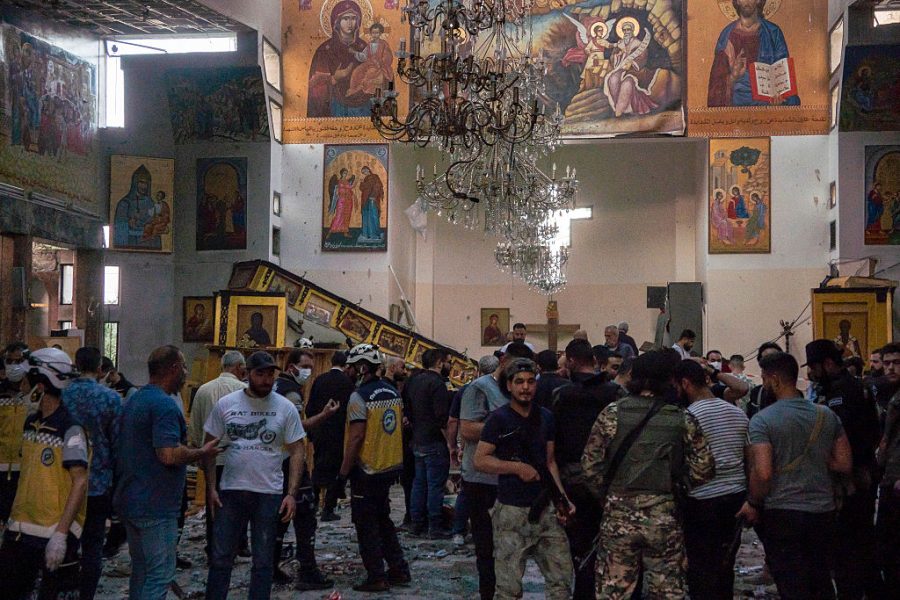Just as things were starting to get better in Syria, an attack against the Christian community has shaken the country. In the suburbs of Damascus, a suspected Isis member entered the Mar Elias Church during Sunday mass, opened fire on the Greek Orthodox worshipers and then detonated a suicide vest. So far, the Syrian Health Ministry has confirmed at least 20 dead and 52 injured.
As I arrived at the scene, armed members of the security forces were closing off the premises, trying to herd away the anxious locals who had gathered. Rubble and shattered glass on the streets, inside pools of blood. The Syrian White Helmets were picking through the broken furniture and looking for unexploded ordnance with a dog. A dazed priest was picking up scattered religious items from the floor.
It is a step back for Syria, a grim reminder of the 14-year-long civil war that ravaged the country
‘I was at home a few streets down when I heard the attack,’ said George, a local living in the area. ‘Then I heard the explosion – different from the ones coming from Iranian missiles that are being intercepted in our skies these days. As I arrived, I saw the chaos and smelled the blood. I couldn’t go in. I’m Greek Catholic, they are Greek Orthodox, but I’m sure I know the dead, some are probably my relatives. What can I say? Right now I don’t feel anything.’
Speculation about the attacker’s identity quickly spread among those gathered. ‘He was Chechen or some other Caucasian!’ exclaimed Maria, another resident in the neighbourhood. ‘I know a radical previously came to convert people in this church, and the security threw him out. It must have been a revenge for that.’
Syria’s Interior Ministry confirmed that Isis was behind the attack. The police and plainclothes members of the new security, armed with Kalashnikovs, were quick to react, setting up many checkpoints around the city. Cars were searched and pedestrians tapped down.
This was the worst attack that Isis carried out since the fall of Bashar al-Assad. Following the implosion of the previous regime, Ahmad al-Sharaa and his group, Hayat Tahrir al-Sham (HTS), took over the government. Despite coming from a radical Islamist background and once being allied to Isis, the new administration promised to protect minorities, including Syria’s sizeable Christian communities. They claim many Isis cells have been busted, planned attacks thwarted, but this one slipped through.
It is a step back for Syria, a grim reminder of the 14-year-long civil war that ravaged the country. The biggest challenge to Interim President al-Sharaa was to unify the countless armed groups of various ideologies, ethnic and religious denominations. Considerable steps have been achieved, like striking deals with the Kurdish-run Syrian Democratic Forces (SDF) and the Turkey-backed Syrian National Army (SNA). Isis, however, is still a headache and is here to stay.






Comments